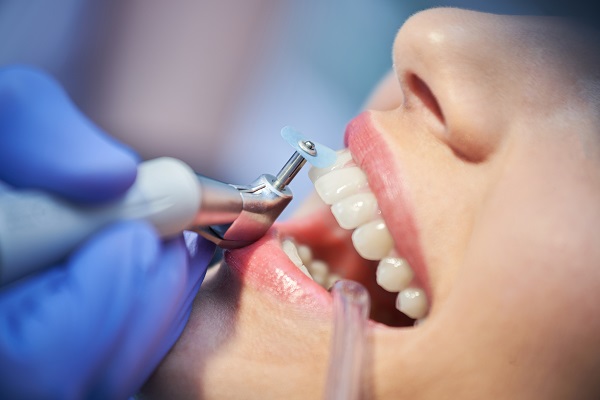Gum Therapy – What Happens in a Deep Teeth Cleaning?

A deep teeth cleaning is not just a procedure needed after skipping dental visits. Instead, a deep teeth cleaning is designed to help combat periodontal disease and gum recession, both of which can lead to irreversible oral health problems. Of course, some individuals who skip routine maintenance from the dentist may need a deep teeth cleaning. Most commonly, however, the procedure is needed to treat problems with the gums, gum line, or interior areas of the teeth. Continue reading to find out more!
Why to get a deep teeth cleaning
Periodontal disease explicitly attacks the gums around the base of the teeth. Over time, the gums become irritated and swollen and harbor many bacteria right along the bottom of the tooth. Unfortunately, the gums can lose some of their grip on the tooth base and begin to pull away. When this happens, small pockets form at the bottom of the teeth. Additionally, these pockets allow even more bacteria to cause further issues. Once pockets have formed from periodontal disease, one will need professional help to eliminate the infection and restore good gum health. This is when dentists recommend deep teeth cleaning.
Untreated, periodontal disease can lead to gum recession and bone or tooth loss.
What happens during deep teeth cleaning
A deep teeth cleaning uses two different steps. The first is called scaling. Scaling is the process used when the hygienist will scrape away all the built-up plaque and tartar on the teeth. These buildups on the teeth prohibit the gums from attaching to the actual surface of the teeth and continue to help bacteria thrive on the surface of the teeth.
Once the tartar and plaque have been cleared from gum pockets, the tooth needs to be prepared so the gums can reattach. This process is called planing. Planing occurs when the dental hygienist smooths the surface of the tooth. Sometimes teeth can have tiny grooves. These grooves can help to harbor more bacteria as the healing process takes place. This can make it more difficult for the gums to reattach to the tooth. After the teeth have been scaled and planed, the gums will need time to heal and reattach to the teeth.
While a deep teeth cleaning is not an invasive procedure, it can further irritate and inflate the gums for a short time. While allowing the gums to heal, it is important to keep them free from bacteria. This means that dental hygiene is critical during this time. However, brushing the teeth and gums too hard during this period can also pull the gums away from the teeth and prohibit healing. Follow the dentist’s directions to help ensure that the gums heal properly.
Long-lasting results
One of the best things about a deep teeth cleaning is that the results are effective and long-lasting. Patients still need to schedule regular maintenance, but the results are much more effective than a simple cleaning.
Request an appointment here: https://hyderdentistry.com or call Shari L. Hyder, DMD at (856) 626-5047 for an appointment in our Oaklyn office.
Check out what others are saying about our dental services on Yelp: Dental Cleaning and Examinations in Oaklyn, NJ.
Related Posts
Many are familiar with the oral health benefits of a dental cleaning, which ultimately reduce the risk of the most common types of gum and teeth issues. However, although not the primary goal of dental cleaning, there are generally cosmetic benefits of regular dental cleaning as well.The cosmetic benefits of a dental cleaning include a…
Getting professional dental cleaning is recommended to protect the teeth from cavities, gum disease, and other issues. Read on to learn more about the importance of dental cleanings. Almost everyone knows brushing their teeth is important for reducing the likelihood of oral issues. However, following these routines alone is not sufficient to protect your oral…
Regular dental cleaning is a small effort with a payoff that can last a lifetime. This may sound like a bold claim, except that it happens to be true. Read on to learn why routine dental visits are good for your oral health.Routine dental checkups come in two parts. The first half consists of a…
If you have not undergone a dental cleaning in over six months, it is time to go for a dental cleaning. Dental professionals recommend undergoing dental cleaning every six months to prevent oral issues such as tooth decay and gum disease. Due to your schedule, you might be concerned about how long the cleaning appointment…
